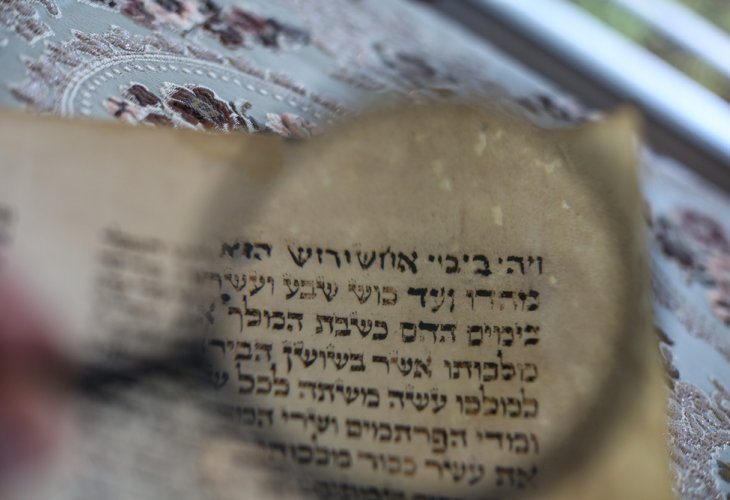Personal Stories
Stalin Won’t Win: The Purim Night That Changed Everything
In the bitter cold of Siberia, heartfelt prayer brought hope and a miracle—just like in the Purim story.
 (Photo: shutterstock)
(Photo: shutterstock)Rabbi Yitzchak Zilber, of blessed memory, was a holy Jew who lived with deep faith and great self-sacrifice. Under the harsh Communist regime in Russia, when keeping Shabbat or wearing tzitzit (fringed garments) could get you arrested, he stood firm in his belief and observance. Years later, the great Rabbi Elyashiv even said about him that he was one of the hidden 36 righteous people upon whom the world stands.
In his powerful book To Remain a Jew, Rabbi Yitzchak shares a story that took place when he was imprisoned in Siberia. It was Purim, the joyous holiday when we celebrate how Hashem saved the Jewish people from the wicked Haman in the time of Queen Esther. But there, in prison, there was no megillah—the scroll we usually read from on Purim. Still, Rabbi Yitzchak gathered the few Jews who were there and began to tell the story of Purim by heart.
He told them about Haman, the enemy of the Jews, who planned to wipe them all out. But through the courage of Mordechai and Esther—and the hidden hand of Hashem—the Jews were saved, and Haman was defeated.
Then, one of the Jewish prisoners suddenly stood up, angry. “Why are you telling us fairy tales from thousands of years ago?” he shouted. “We have a Haman today—Stalin! He wants to destroy us! I don’t care how the Jews were saved back then. I want to know how Hashem is going to save us now.”
And the man wasn’t wrong. Stalin really did have a plan to quietly get rid of the Jews. He had begun building long, cold train cars—without heat or even windows—to send them to frozen Siberia, pretending it was “for their own good.” Stalin told his advisors that most Jews would die on the way, and the rest would freeze to death.
Rabbi Yitzchak calmly turned to the man and said, “Yes, Stalin is powerful. He could kill millions. But he’s still just a person. He can’t destroy the Jewish people.”
The man wasn’t convinced. “Why not? Look at him—he's stronger than anyone. He’s not even 50 years old, doesn’t have a single white hair. Who can stop him?”
Rabbi Yitzchak looked him in the eye and said, “If Hashem wants, in half an hour he won’t be here anymore.”
The man stared at him, thinking Rabbi Yitzchak had lost his mind.
Then Rabbi Zilber smiled and said, “You know what? Not even half an hour. In twenty minutes—he won’t be here.”
And then something incredible happened.
Just minutes later, there was a loud noise in the hallway. Guards were running. Something serious was going on. And it was true: at that very time—on the night of Purim—Stalin suffered a sudden brain hemorrhage. Three days later, he died.
Rabbi Yitzchak later said, “For three days I recited Tehillim (Psalms), begging Hashem that Stalin would die. And Hashem heard our prayers.”
This is the power of Purim. This is the power of faith.
Every generation has its “Haman,” someone who rises up against the Jewish people. But just like in the story of Purim—and just like in that freezing prison cell in Siberia—Hashem is always watching. And with emunah (faith) and heartfelt prayer, even the darkest night can become a day of light.
As Purim approaches, may we all take this chance to cry out to Hashem, trust Him deeply, and look forward to the day when all our enemies will be gone forever, and we’ll be redeemed with joy that never ends.

